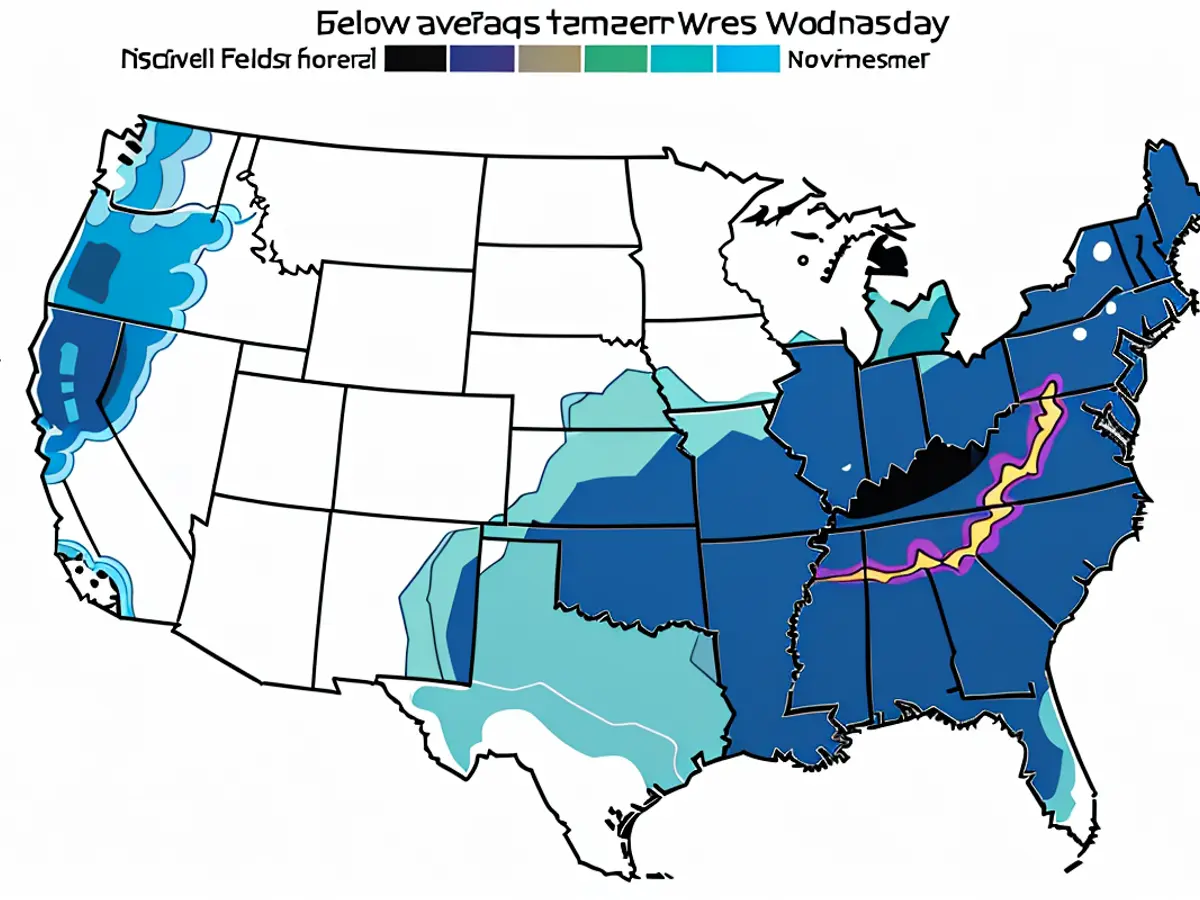FEMA faces financial shortages with $25 billion worth of disasters occurring this year as the destructive weather season approaches.
During this summer that is forecasted to be extreme, with heat waves, severe weather, and hurricanes, the country's disaster relief agency is projected to run out of money before it's even over. The United States has already experienced 11 disasters resulting in costs over $1 billion, summing up to $25.1 billion, according to the National Oceanic and Atmospheric Administration's updated count. This year's count is tied for the second-highest number of such disasters in history, but it doesn't include the extreme weather events in May, said Adam Smith, an applied climatologist at NOAA.
The Federal Emergency Management Agency (FEMA) is facing a potential shortage of $1.3 billion in August, as stated in a May report. Florida's two Republican senators sent a letter to FEMA asking for details on how much more funding would be required to handle the upcoming hurricane season.
FEMA did not directly reveal the amount of funding needed but assured that they are working with Congress to secure sufficient funds. If a major disaster like a hurricane happens, there would be a reserved fund for initial response and recovery operations.
The agency's tight budget reflects the significant destruction caused by numerous storms in the country. This spring had the second-highest record of tornadoes since 1950, according to the Storm Prediction Center. The tornado activity was exceptionally high from late April to May, with over 780 confirmed tornadoes crossing the central and eastern US during that time.
Some storms have been fatal, like the EF4 that struck Greenfield, Iowa, killing 5 people, and the EF4 in Cooke County, Texas, claiming 7 lives. Severe thunderstorms have caused significant damage, with hail destroying infrastructure, especially in the central US. Multiple cities experienced hurricane-force winds in May, and a derecho with 100 mph gusts shattered windows in downtown Houston's skyscrapers. Nearly a million homes and businesses were left without power due to extra-strong winds that wreaked havoc on massive transmission towers.
Experts predict that this summer could continue the destruction, with a supercharged hurricane season and dangerous, intense heat. If the current climate crisis continues to heat up the planet, it may lead to an above-average Atlantic hurricane season and dangerous heatwaves.
![Houston, Texas: Teams clean up debris after a wall collapsed due to a violent storm on May 17, 2024, leaving four people dead. Swift thunderstorms battered southeastern Texas for the second time this month, shattering windows in tall buildings, uprooting trees, and leaving over 900,000 households and businesses without electricity in the Houston region. [Brett Coomer/Houston Chronicle via Getty Images] HOUSTON, TEXAS - MAY 17: Crews work to clean up debris after a wall came down in the aftermath of a severe storm on Friday, May 17, 2024 in Houston. Fast-moving thunderstorms pummeled southeastern Texas for the second time this month, killing at least four people, blowing out windows in high-rise buildings, downing trees and knocking out power to more than 900,000 homes and businesses in the Houston area. (Brett Coomer/Houston Chronicle via Getty Images)](https://cdn.aussiedlerbote.de/content/images/2024/06/10/326713/jpeg/4-3/1200/75/houston-texas-may-17-crews-work-to-clean-up-debris-after-a-wall-came-down-in-the-aftermath-of-a-severe-storm-on-friday-may-17-2024-in-houston-fast-moving-thunderstorms-pummeled-southeastern-texas-for-the-second-time-this-month-killing-at-least-four-people-blowing-out-windows-in-high-rise-buildings-downing-trees-and-knocking-out-power-to-more-than-900000-homes-and-businesses-in-the-houston-area-brett-coomer-houston-chronicle-via-getty-images.webp)
The summer season is known to have the most billion-dollar disasters historically as it's a transition period of many extremes, as the severe storm season continues, and the hurricane season approaches. This summer could be no exception as it brings potential for more severe thunderstorms, like tornadoes and hail. Unlike hurricanes, scientists still aren't entirely sure if there's a link between climate change and more severe or more frequent tornadoes, but they are certain that it's intensifying heat waves.
Above-average temperatures are expected across almost the entire lower 48 states, with Las Vegas having set a record for the hottest start to June. Drought and wildfires are possible due to prolonged, intense heat, which can cost billions of dollars in crop losses.
Last year's heat domes that emptied the South and produced the worst drought in Louisiana's history are concerning, as well as extreme fire seasons. However, California's fire season could start late due to excessive rain this year. Nevertheless, Swain, a climate scientist at UCLA, believes wildfire activity could intensify in California towards the end of summer, with massive grasslands becoming a tinderbox for fast-moving wildfires, especially in the central and western US.
In essence, it's expected to be another year of year-round extreme weather.

Read also:
The Federal Emergency Management Agency (FEMA) is seeking additional funding to address the anticipated financial shortage in August, as mentioned in Senator Rubio and Scott's letter. The potential funding requirement for FEMA to handle the upcoming hurricane season remains undisclosed.
The current financial challenges facing FEMA are a result of numerous disasters, including the record-breaking tornado activity this spring and the destructive storms that have occurred in various parts of the country.








